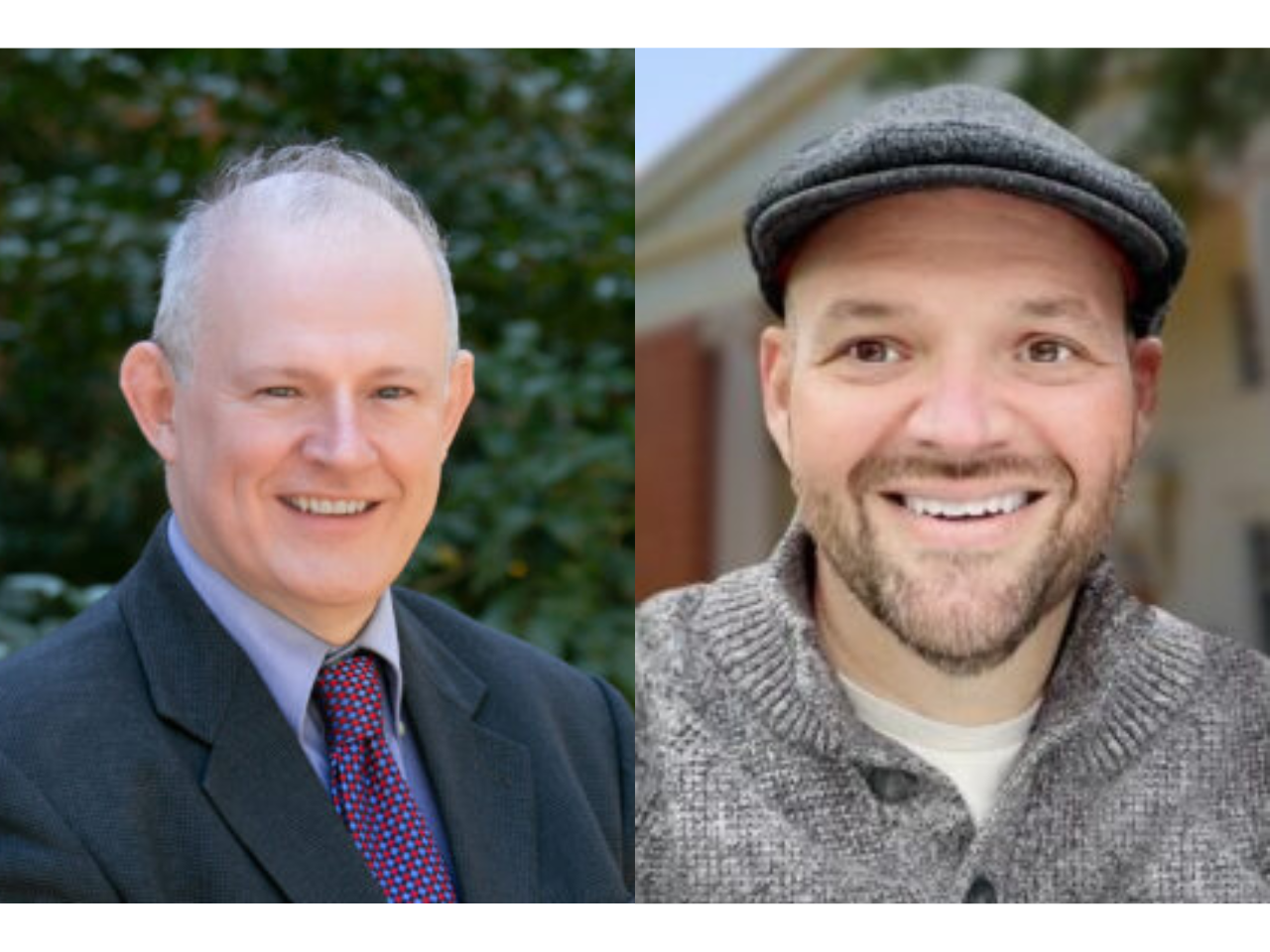Two University of Georgia faculty members have been named Regents’ Professors in recognition of their innovative and pace-setting research. The honor is the highest professorial recognition bestowed by the University System of Georgia Board of Regents.
The university’s 2025 Regents’ Professors are Andrew Herod, Distinguished Research Professor in the department of geography in the Franklin College of Arts and Sciences; and M. Stephen Trent, UGA Foundation Distinguished Professor in the department of infectious diseases in the College of Veterinary Medicine.
“Professors Herod and Trent are recognized nationally and internationally for their pioneering research and scholarship, and they are most deserving of this high honor,” said S. Jack Hu, the university’s senior vice president for academic affairs and provost. “The impact of their work resonates around the world and addresses some of our most complex challenges.”
Andrew Herod
Herod describes himself as a human geographer and political economist who’s interested in how economic landscapes are made. He is widely considered the world’s foremost expert in the field of labor geography, which he helped create in the 1990s.
“It is no exaggeration to say that Dr. Herod has been one of the most important voices of his generation in the broad interdiscipline that is human geography,” said Jamie Peck, Distinguished University Scholar and professor of geography at the University of British Columbia. “There are not many who can lay claim to the formation and shaping of an entirely new subfield in their home discipline.”
Herod’s research projects have ranged from exploring how U.S. dock workers adapted to technological innovations in the 1950s, noting how Western labor unions worked with their counterparts in Central and Eastern Europe in the 1990s to help rebuild the region’s economies, and studying the impact of COVID-19 on labor markets. His most recent book, “Industry 4.0 and the Future of Work,” was published in 2024. In the book, Herod and his co-authors examine the changing nature of work, the increasing production of waste and the interdependence of these factors in a circular economy.
In 2023, Herod was awarded a Guggenheim Fellowship, presented annually by the John Simon Guggenheim Memorial Foundation to scientists, writers, scholars and artists “who have demonstrated exceptional capacity for productive scholarship or exceptional creative ability in the arts.”
Herod has published 12 books and more than 100 refereed journal articles, several of which have won national and international awards. ScholarGPS, a leading online research information and analysis platform, lists Herod among the top 0.5% of scholars cited worldwide.
“There’s been virtually no published research essay on questions of geography, employment and economic restructuring published by an Anglophone geographer over the last 20-plus years that does not cite or draw substantively upon his research,” said Noel Castree, a professor and associate dean for research at the University of Technology Sydney.
M. Stephen Trent
Trent is recognized internationally as a leading researcher in bacterial cell surfaces and cell envelope biology. His findings are critical to scientists’ understanding of antibiotic resistance and impact the development of novel antibiotics and vaccines and the treatment of infectious diseases.
One of the main focuses of Trent’s lab is how bacteria become resistant to antibiotics, including “last resort” medicines used to fight bacteria when nothing else will work. Among other discoveries, his lab has identified mechanisms that bacteria employ to modify their surface to enhance their survival in diverse environments and to protect themselves from attack from the human immune system.
“Dr. Trent’s discoveries have not only contributed critical new knowledge, but also have profound implications for the treatment of infectious disease,” said Tracy Palmer, a professor of microbiology at Newcastle University in the United Kingdom and Fellow of both the Royal Society and the Academy of Medical Sciences.
Trent’s research has attracted more than $30 million in external funding from organizations including the National Institutes of Health, the Department of Defense and the Cystic Fibrosis Foundation. His work has addressed significant gaps in scientists’ understanding of bacterial physiology and led to more than 130 published studies in leading scientific journals.
Additionally, his research has led to several patents and licensing agreements, highlighting his ability to translate laboratory discoveries into clinical applications that promise to improve patient health.
Trent’s honors include the Zoetis Award for Research Excellence, presented by the American Veterinary Medical Association, and UGA’s Lamar Dodd Creative Research Award. He was elected a Fellow of the American Association for the Advancement of Science in 2023 and a Fellow of the American Academy of Microbiology in 2014.
“Many microbiologists often focus on a single organism their entire career, but Stephen decided early on to take a more systems-based approach to investigating diverse bacteria, increasing the relevance of his work,” said Lisa K. Nolan, Georgia Athletic Association Distinguished Professor and dean of the College of Veterinary Medicine. “The rigorous nature and scale of his approach to the scientific question at hand has allowed him to tackle highly complex and novel questions in depth.”
As the newest Regents’ Professors, Herod and Trent will deliver the 2025 Charter Lecture on March 26 at 11 a.m. in the Chapel.
Regents’ Professors receive a permanent increase in salary of $10,000 in the year they are initially appointed. In addition, awardees receive yearly academic support of $5,000 as long as they hold the Regents’ Professorship. For a complete list of Regents’ Professors at UGA, see https://provost.uga.edu/academic-excellence/honors-awards/career-achievement-awards-professorships/regents-professorships/regents-professors/.
Written by: Mike Wooten




